Latest posts
Introducing Gigwa: Genotype Investigator for Genome-Wide Analyses
Guilhem Sempere - June 8, 2016
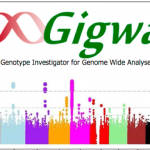
GigaScience recently published an article all about a Genotype Investigator for Genome-Wide Analyses, alternatively known as Gigwa. But what is this and how can it help? Guilhem Sempere explains more.
The Complexities of Modern Plant Phenomics: A Guest Blog by our Plant Phenomics Series Guest Editors
Nicole Nogoy - June 7, 2016
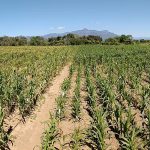
Four enthusiastic Guest Editors (Rubén Rellán Álvarez, Guillaume Lobet, Malia Gehan and Srikant Srinivasan) of our Plant Phenomics: Data Integration series, have got together and share their insights on the current status of Plant Phenomics research.
Parasite Protocols Part 2. Author Q&A with François Olivier Hébert
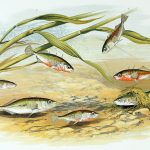
Following our “Reproducible Research Resources for Research(ing) Parasites” announcement of a collaboration with protocols.io, we thought we would go into more detail on our first papers integrating their methodologies on this platform. To give some insight into his work, we have one of our author Q&As with first author François Olivier Hébert.
Reproducible Research Resources for Research(ing) Parasites
Scott Edmunds - June 3, 2016
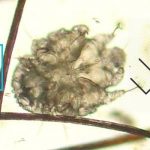
Two new research papers on scabies and tapeworms published today showcase a new collaboration with protocols.io. This demonstrates a new way to share scientific methods that allows scientists to better repeat and build upon these complicated studies on difficult-to-study parasites. It also highlights a new means of writing all research papers with citable methods that can be updated over time.
The Annotometer Results Are In…
Chris Hunter - May 3, 2016

And the final result from the Annotometer is in! GigaScience Lead Biocurator Chris Hunter updates us and provides lessons on how the GigaCuration Challenge went at last months Biocuration 2016.
Big Data Challenges and Solutions in Contemporary Ecology: A Guest Blog by Chris Lortie
Nicole Nogoy - April 26, 2016

Chris Lortie is an integrative ecologist (Santa Barbara, USA and York University, Canada) and is a co-Guest Editor of our Data-Intensive Ecology series. Here, he shares his views on a few challenges and solutions in contemporary ecology as the field moves into the big-data era.
See inside Obama in 3D? Yes We Can!
Scott Edmunds - March 17, 2016

What does Obama, mysteries hidden in Brazilian leaf litter, and state-of-the art 3D imaging technology have in common? Find out more in GigaBlog.
Open Science Resources for Contributing to Brain Imaging Research: A Guest Blog by Cameron Craddock
Nicole Nogoy - March 15, 2016
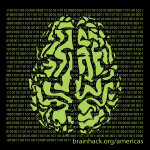
In support of Brain Awareness Week, we have asked Cameron Craddock, Director of the Computational NeuroImaging Lab, Nathan S. Kline Institute for Psychiatric Research and Director of Imaging, Child Mind Institute, to write a blog highlighting open science in neuroimaging, and to announce our upcoming publication of the 2015 Brainhack Proceedings and the Brainhack Thematic Series. BioMed Central are also highlighting some of the amazing benefits of brain research and showcasing the progress being made by researchers around to world.
GigaMetabolomics Strikes Again: More BYO Data Parties and a Thematic Series
Nicole Nogoy - March 13, 2016
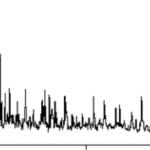
We are continuing our support for metabolomics open data and training with a 2nd BBSRC UK-China collaboration grant focussing on metabolomics data
Data Driven Conservation. Q&A with Taras Oleksyk on ConGen2016
Scott Edmunds - March 8, 2016
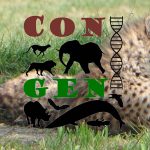
Conservation research is being dragged into the 21st century with efforts such as the ConGen training workshop. Deputy director of the program Taras Oleksyk tells us more in this Q&A.